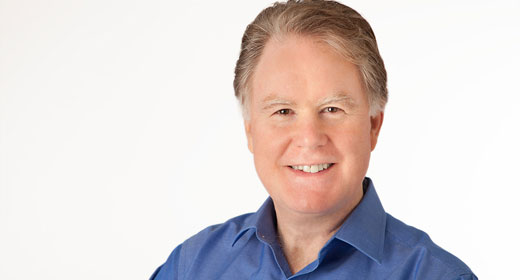by Peter Diamandis: How long you live is a function of many factors, including your mindset. You can actually “Will yourself to death—or will yourself to a longer healthspan…”
How long do you think you will live? 80 years old? Maybe, 90? What would have to change for you to believe that you could live to 120 years old?
My mission is to transform the way you think: to transform your mindset around many factors, including longevity.
The best way for me to do this is to give you overwhelming evidence of the massive medical advancements that can and will extend your healthspan.
I want you to go from thinking: “That sounds possible” to thinking: “Amazing! This is really happening!”
One way I do this is by taking a small, select group of entrepreneurs, investors, and philanthropists on my annual Platinum Longevity & Vitality Trip. Together, we experience first-hand exposure to the major players, scientists, companies and treatments in the longevity and vitality arena, visiting the top labs, scientists, and startups in the field.
Interested in joining me on the Platinum Trip? You’ll get all your questions answered, learn key insights on how to extend your healthspan, and receive early access to diagnostics, therapeutics, and investment opportunities.
In today’s blog, I’ll discuss what it means to have a Longevity Mindset and how having one can help you maximize your healthspan.
Let’s dive in!
WHAT’S THE OPPOSITE OF A LONGEVITY MINDSET?
One way to understand something is to understand its opposite.
The opposite of a Longevity Mindset is accepting the societal norms that life expectancy for females is about 80 years and for males is roughly 75 years old—and that there is nothing you can do about it. Just accept the cards you’ve been dealt. (Data is for the US population as of 2020, according to the CDC.)
Now that’s fine if that’s what you want, but there is another option… and it’s sad that most people spend all their savings in the last 5% of their lives fighting disease with extreme measures, rather than use the capital earlier to keep them healthier longer.
The mindset of “mortality is normal and expected” is pervasive in society.
For many years, it has been taboo in medical and research circles to talk about extending the healthy human lifespan, or to event mention the idea that “aging is a disease.” Scientists proclaiming this doctrine were shunned and feared that their grant funding might evaporate.
This negative mindset also permeates life outside the lab. You can see its effects everywhere. Many of our institutions, services, and markets are structured around the ostensibly inevitable reality of people dying in their sixties, seventies, and eighties. As well as the belief that anyone making it to 100 means a wheelchair and a diagnosis of Alzheimer’s. Government policies, insurance, medicine, religion—they’re all organized around this mindset and its assumptions.
So, what’s changed?
Now more than ever, during a period of exponential medicine, you don’t have to accept the cards you’re dealt. Technologies like genome sequencing, RNA transcriptomics, Wnt pathway modifiers, vaccines, CRISPR, liquid biopsies, CAR-T cells, Gene Therapy, exosomes, and stem cells are just some of the technologies in development.
Please remember that human beings were never designed to live past age 30 (the point after which you had already passed on your genes). The fact that we routinely double or triple that life expectancy is miraculous.
Because of this reality, after 30 years of age, many of our body’s systems (specifically gene expression) go into dysregulation and we begin to accumulate significant cellular damage. As a result, our bodies develop a multitude of diseases, which we now call aging.
Ultimately, aging is a disease—a disease that many are beginning to believe can be slowed, stopped and perhaps even reversed.
To date, we’ve seen maybe 10% of all the possible longevity-extending technologies that will impact us in the decade ahead…
By the way, get ready for a massive acceleration coming from AI and the arrival of quantum computers able to model molecular interactions within cells and on the cell surface. Given all of these exciting developments, the right mindset to have is one that’s optimistic and focused on maximizing your health and adding decades of healthy years to your life.
That’s the spirit of the Longevity Mindset.
DO YOU HAVE A LONGEVITY MINDSET?
So, what shapes your Longevity Mindset? It may seem obvious, but we regularly ignore shaping our mindset and just accept what we have.
Below are 6 key areas of a Longevity Mindset that you can shape today. As you read through them, ask yourself: Where can you improve? What would it take to improve?
#1) What You Believe: At one end of the spectrum, you see life as short and precious—you’ll consider yourself lucky if you make it to 75 or 80 years old. At the other end, you’re focused on making “100 years old the new 60.” You see aging as a disease, and you actively track breakthroughs in biotech that have the potential to slow or even reverse aging (e.g., CRISPR, cellular medicines).
#2) What You Read / Your Media Consumption: The type of content and media you consume (e.g., books, blogs, movies, news) directly affects your outlook on life—for better or worse. Are you reading the obituaries of old friends? Or are you reading books like David Sinclair’s LIfespan and Life Force (which I recently wrote with Tony Robbins). Or your consuming digital content like my AI-enabled longevity newsletter called Longevity Insider (try it, it’s free and will give you a daily dose of insight and optimism.)
#3) Your Community: The people you spend time with shape who you are and what you do. At one end of the spectrum, you only hang out with older people who constantly talk and worry about death. It’s just a matter of time… But at the other end, you spend time with people who are optimistic and youthful, and who actively pursue longevity.
#4) Sleep: Sleep is fundamental and critical. A great book that details this is Why We Sleep by Dr. Matt Walker. We physiologically *need* 8 hours of sleep per night. Do you believe the motto that “There’s plenty of time to sleep when I’m dead”? Or do you prioritize sleep and use the best techniques to help you achieve 8 healthy hours of sleep?
#5) Diet: There is truth to the saying that “You are what you eat.” Do you eat whatever you want, whenever you want? Are you overweight, and eating way too much sugar? Have you intentionally shaped your diet, with a no-sugar/keto or vegan diet? Or have you explored and mastered intermittent fasting to maximize your energy and longevity?
#6) Exercise: Along with your mindset, sufficient sleep, and a healthy diet, exercise is fundamental to longevity. The latest research on longevity makes it clear that increasing muscle mass is critical. At one end of the spectrum, you don’t exercise at all. But at the other end, you consider exercise a must. You exercise at least three times each week, for example interval training and weightlifting. Perhaps you even take peptides to manipulate your growth hormones to increase muscle mass.
Do you desire a Longevity Mindset? Are you interested in how to increase your healthspan?










































